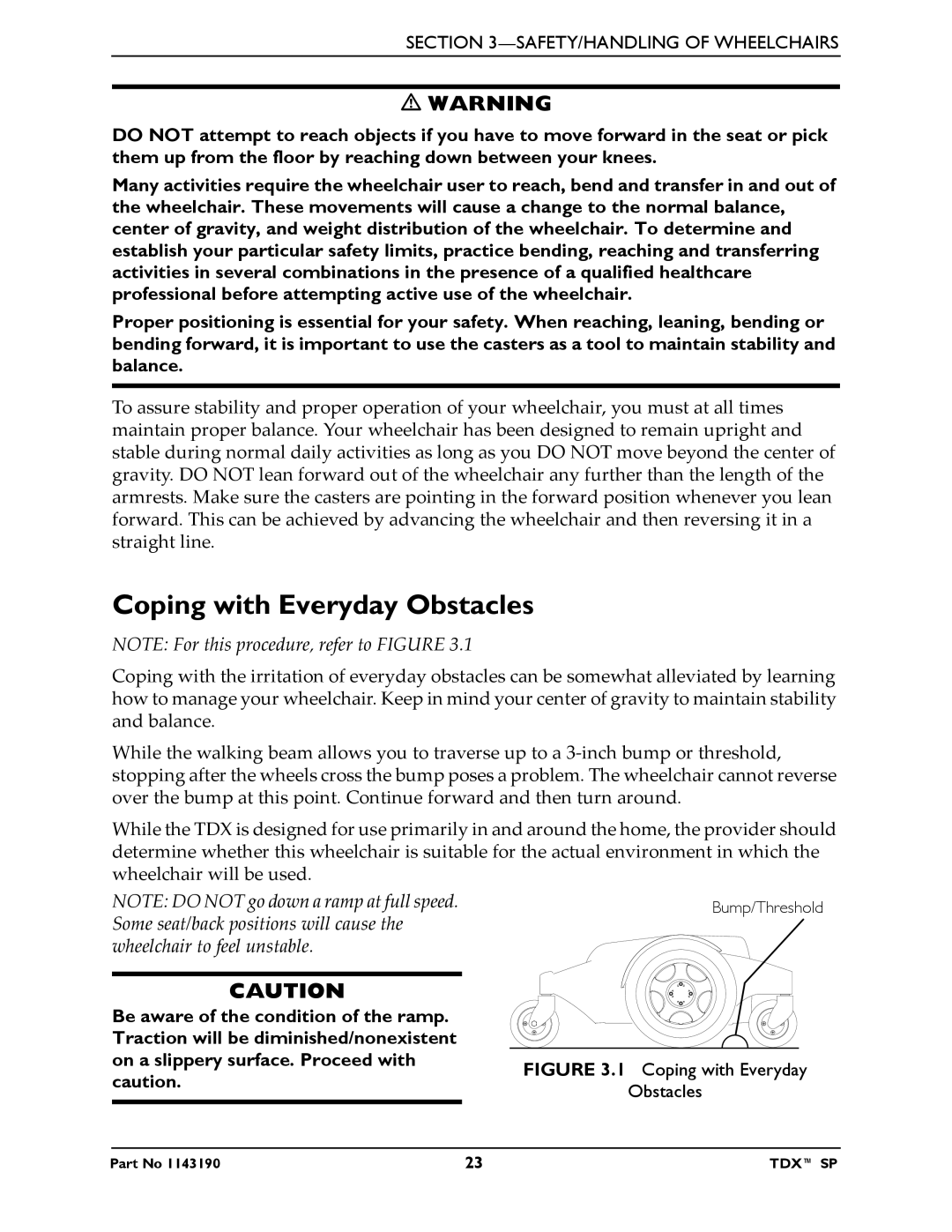
SECTION 3—SAFETY/HANDLING OF WHEELCHAIRS
WARNING
DO NOT attempt to reach objects if you have to move forward in the seat or pick them up from the floor by reaching down between your knees.
Many activities require the wheelchair user to reach, bend and transfer in and out of the wheelchair. These movements will cause a change to the normal balance, center of gravity, and weight distribution of the wheelchair. To determine and establish your particular safety limits, practice bending, reaching and transferring activities in several combinations in the presence of a qualified healthcare professional before attempting active use of the wheelchair.
Proper positioning is essential for your safety. When reaching, leaning, bending or bending forward, it is important to use the casters as a tool to maintain stability and balance.
To assure stability and proper operation of your wheelchair, you must at all times maintain proper balance. Your wheelchair has been designed to remain upright and stable during normal daily activities as long as you DO NOT move beyond the center of gravity. DO NOT lean forward out of the wheelchair any further than the length of the armrests. Make sure the casters are pointing in the forward position whenever you lean forward. This can be achieved by advancing the wheelchair and then reversing it in a straight line.
Coping with Everyday Obstacles
NOTE: For this procedure, refer to FIGURE 3.1
Coping with the irritation of everyday obstacles can be somewhat alleviated by learning how to manage your wheelchair. Keep in mind your center of gravity to maintain stability and balance.
While the walking beam allows you to traverse up to a 3‐inch bump or threshold, stopping after the wheels cross the bump poses a problem. The wheelchair cannot reverse over the bump at this point. Continue forward and then turn around.
While the TDX is designed for use primarily in and around the home, the provider should determine whether this wheelchair is suitable for the actual environment in which the wheelchair will be used.
NOTE: DO NOT go down a ramp at full speed. Some seat/back positions will cause the wheelchair to feel unstable.
CAUTION
Be aware of the condition of the ramp. Traction will be diminished/nonexistent on a slippery surface. Proceed with caution.
Part No 1143190 | 23 | TDX™ SP |
